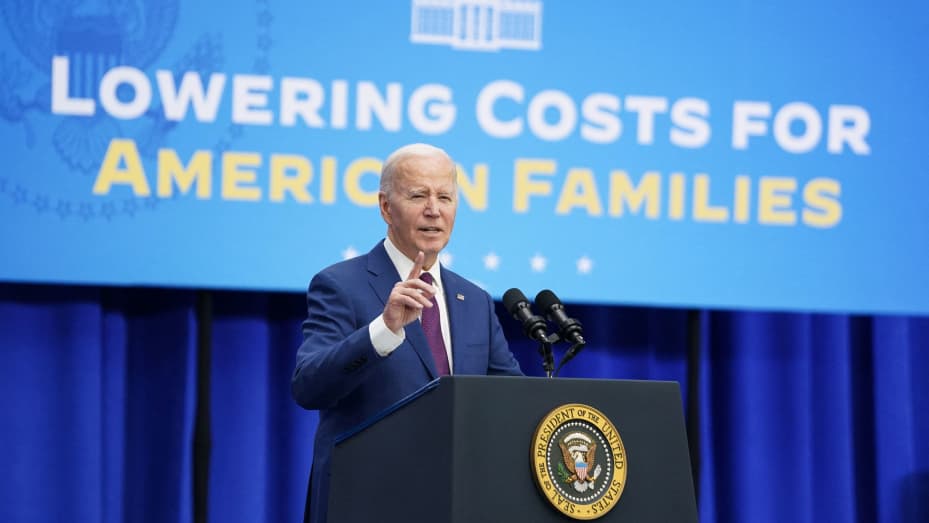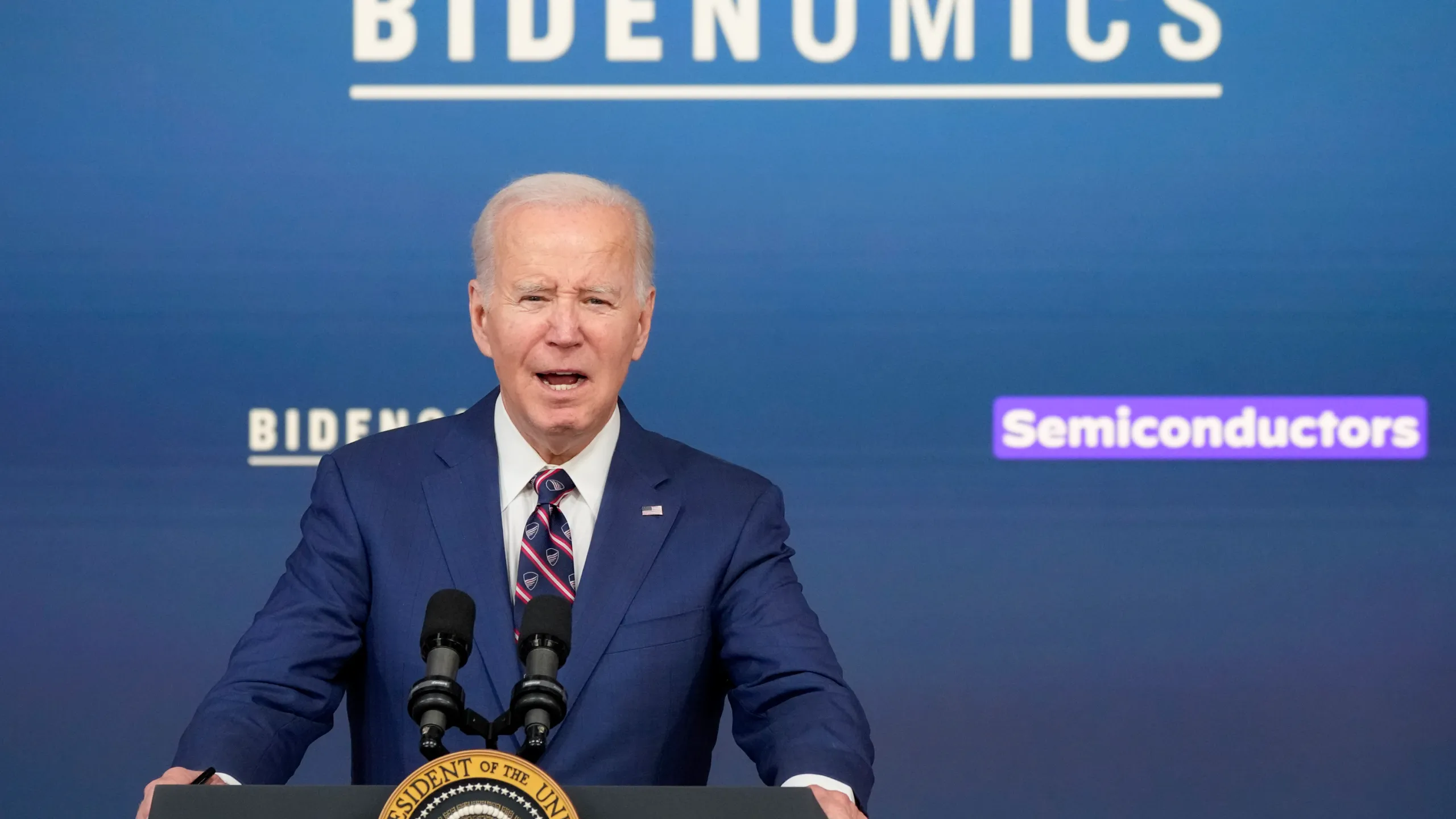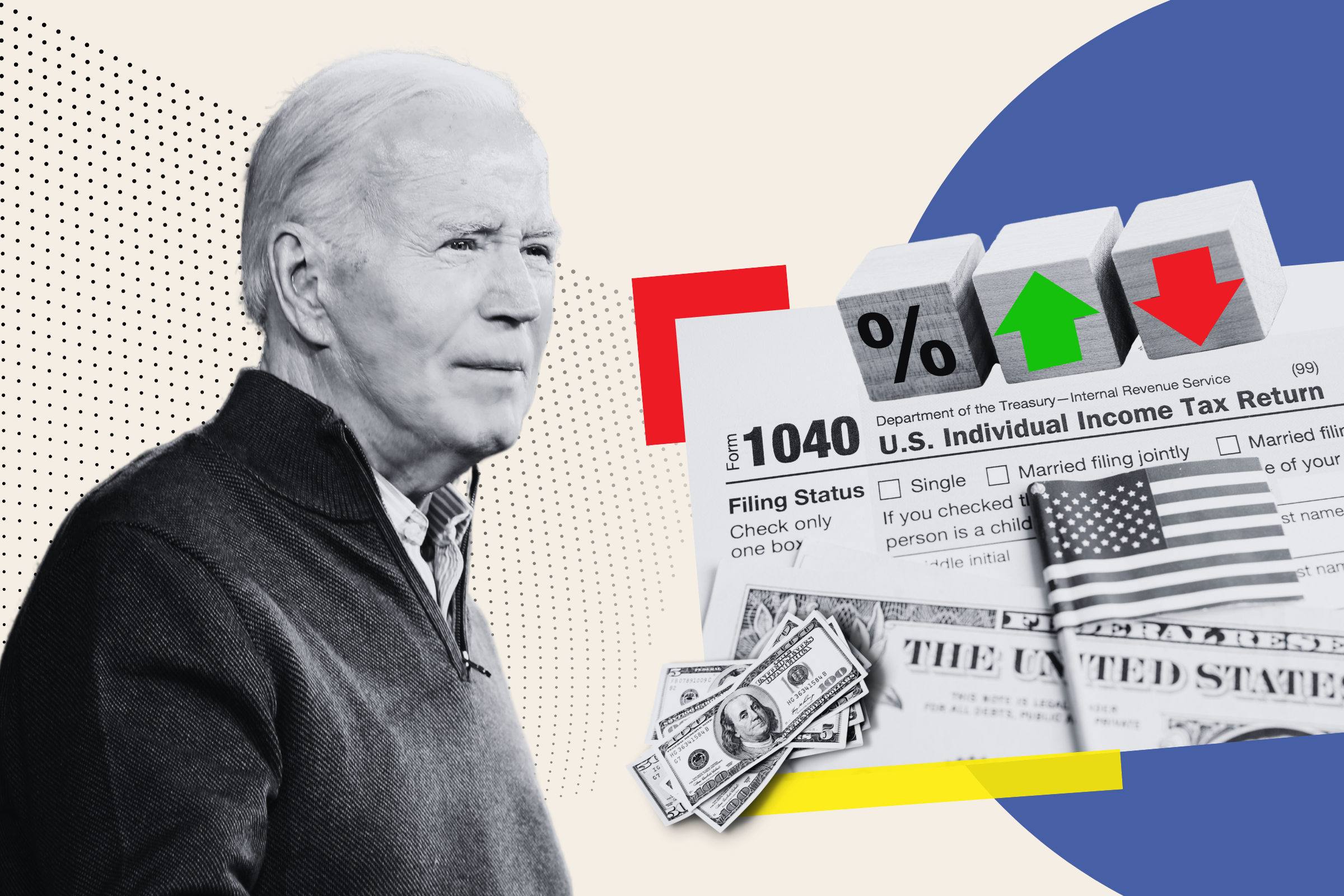The prospect of multiple tax increases looms for the wealthiest Americans if President Joe Biden secures reelection in November and the Democrats gain control of both the Senate and House of Representatives, asserts a prominent taxation expert.
In an interview with Newsweek, Ed Oswald, a tax specialist and co-author of “From Ronald to Donald: How the Myth of Reagan Became the Cult of Trump,” articulated this assertion. Following a series of primary victories on March 12, Biden and former President Donald Trump emerged as the presumptive nominees for their respective parties in the upcoming November election, drawing attention to the policy disparities between them and their potential agendas if elected.
Oswald highlighted the stark contrast in tax policy objectives between Biden and Trump, emphasizing that the ultimate ability to enact these policies hinges significantly on control of Congress. He remarked, “If Biden is elected, I would expect to see a range of tax increase proposals primarily aimed at wealthy individuals and corporations.”

Biden (Credits: CNBC)
He underscored that the success of either candidate on the tax policy front would be contingent upon the composition of the legislative branch. Oswald anticipated support from the Biden Administration for modernizing the Internal Revenue Service (IRS) and bolstering its enforcement and staffing capabilities.
Specifically, Oswald outlined Biden’s proposals, including an increase in the corporate tax rate from 21 percent to 28 percent and the implementation of a minimum tax of 25 percent on billionaires. Notably, such measures would reverse key components of Trump’s flagship 2017 Tax Cuts and Jobs Act, which slashed the corporate tax rate to 21 percent and reduced income tax brackets.
Citing a study by the Institute on Taxation and Economic Policy, Oswald pointed out that the Trump-era tax cuts disproportionately benefited the wealthy, with nearly half of the reductions accruing to individuals earning at least $232,000 annually.

Biden (Credits: FOX 5 San Diego)
He speculated that Trump would likely seek to extend these cuts if reelected, while Biden would advocate for their expiration. Oswald also suggested that Trump might aim to lower the highest income tax rate, which currently applies to incomes exceeding $609,350 for singles and $731,200 for married couples filing jointly.
Acknowledging Biden’s proposed spending initiatives and commitment to addressing income and wealth inequality, Oswald emphasized the likelihood of some form of tax increase under a Biden administration. However, he cautioned that the national debt, currently surpassing $34 trillion, could constrain the fiscal policies of either candidate. Notably, the cost of servicing the debt alone in 2024 is projected to approach $870 billion, nearing the annual U.S. defense budget.
In response to these assertions, White House Assistant Press Secretary Michael Kikukawa highlighted the contrasting approaches of the Biden and Trump administrations. Kikukawa emphasized Biden’s focus on cutting taxes for working families and the middle class while holding households earning less than $400,000 exempt from tax hikes, thus ensuring a fair distribution of the tax burden.
Reflecting on historical tax policy trends, Oswald noted that bipartisan support for significantly higher taxes on high earners persisted until the Reagan era. He highlighted the progressive nature of the Internal Revenue Code from 1932 to 1980, characterized by high marginal income tax rates averaging around 80 percent. However, this trajectory shifted under Reagan’s presidency, marked by a substantial reduction in the highest marginal income tax rate from 70 percent to 28 percent over two terms.
























